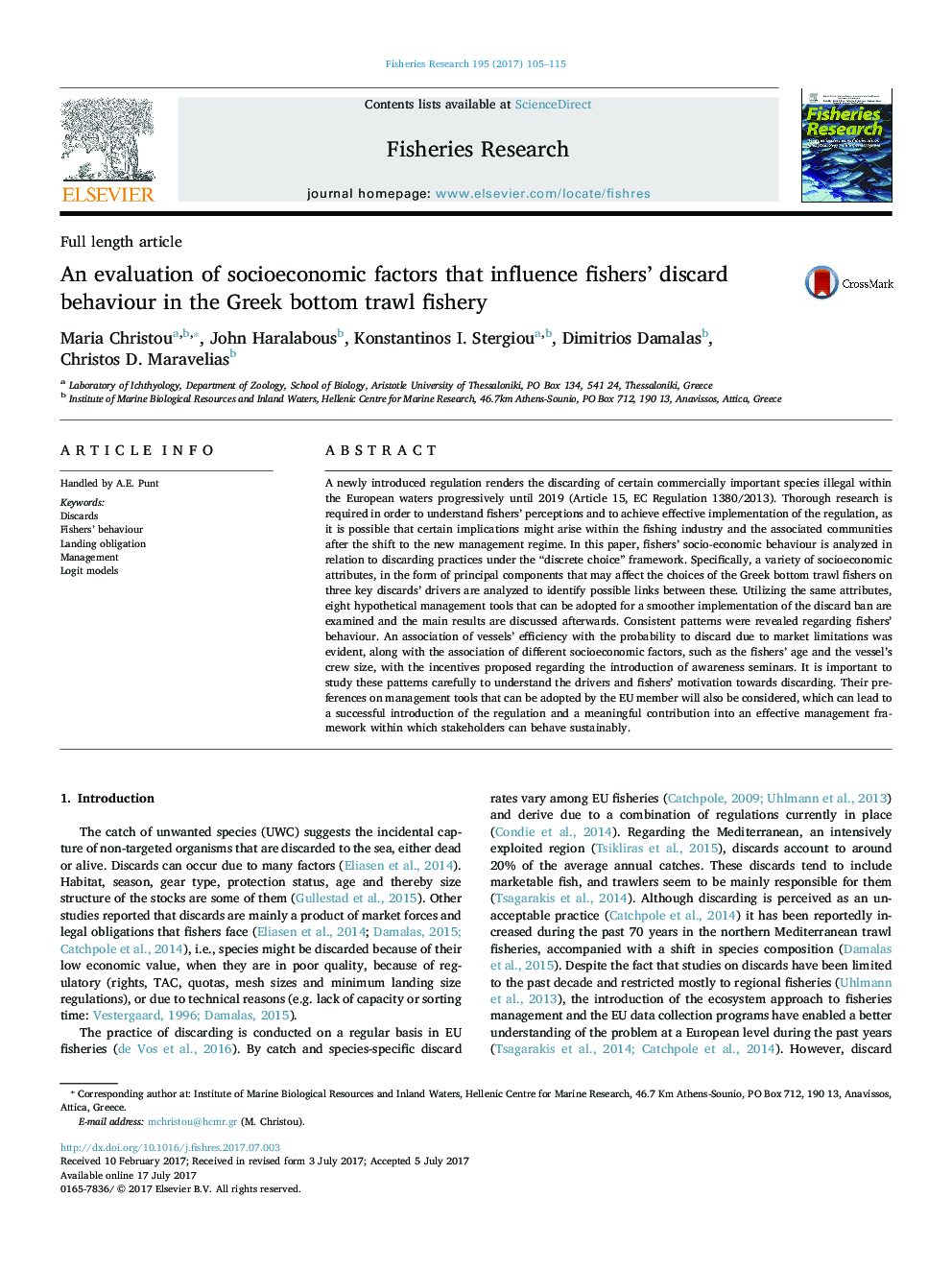| Article ID | Journal | Published Year | Pages | File Type |
|---|---|---|---|---|
| 5765509 | Fisheries Research | 2017 | 11 Pages |
â¢Discarding due to MLS or market prices was associated with more efficient, productive and technologically advanced vessels.â¢Fisher's socioeconomic background can be indicative of fishers' preferences in assessing the importance of management measures.â¢A strong support for educational and economic incentives was expressed for implementing the discard ban in Greece.â¢The results of the present study can facilitate the design of successful multiannual plans.
A newly introduced regulation renders the discarding of certain commercially important species illegal within the European waters progressively until 2019 (Article 15, EC Regulation 1380/2013). Thorough research is required in order to understand fishers' perceptions and to achieve effective implementation of the regulation, as it is possible that certain implications might arise within the fishing industry and the associated communities after the shift to the new management regime. In this paper, fishers' socio-economic behaviour is analyzed in relation to discarding practices under the “discrete choice” framework. Specifically, a variety of socioeconomic attributes, in the form of principal components that may affect the choices of the Greek bottom trawl fishers on three key discards' drivers are analyzed to identify possible links between these. Utilizing the same attributes, eight hypothetical management tools that can be adopted for a smoother implementation of the discard ban are examined and the main results are discussed afterwards. Consistent patterns were revealed regarding fishers' behaviour. An association of vessels' efficiency with the probability to discard due to market limitations was evident, along with the association of different socioeconomic factors, such as the fishers' age and the vessel's crew size, with the incentives proposed regarding the introduction of awareness seminars. It is important to study these patterns carefully to understand the drivers and fishers' motivation towards discarding. Their preferences on management tools that can be adopted by the EU member will also be considered, which can lead to a successful introduction of the regulation and a meaningful contribution into an effective management framework within which stakeholders can behave sustainably.
